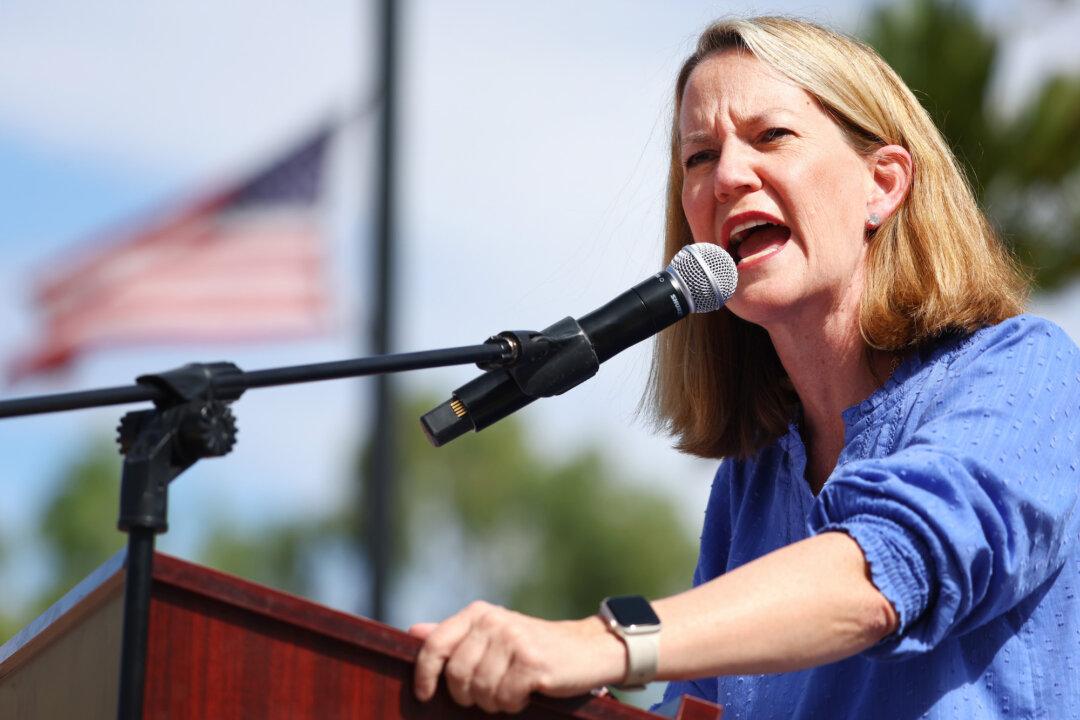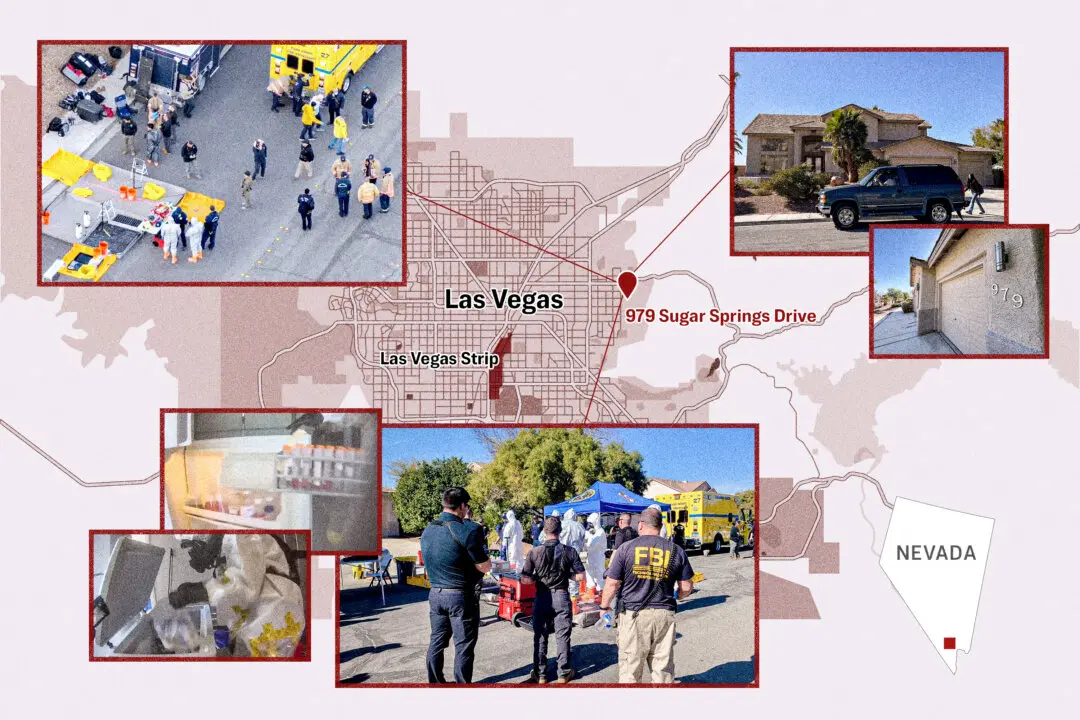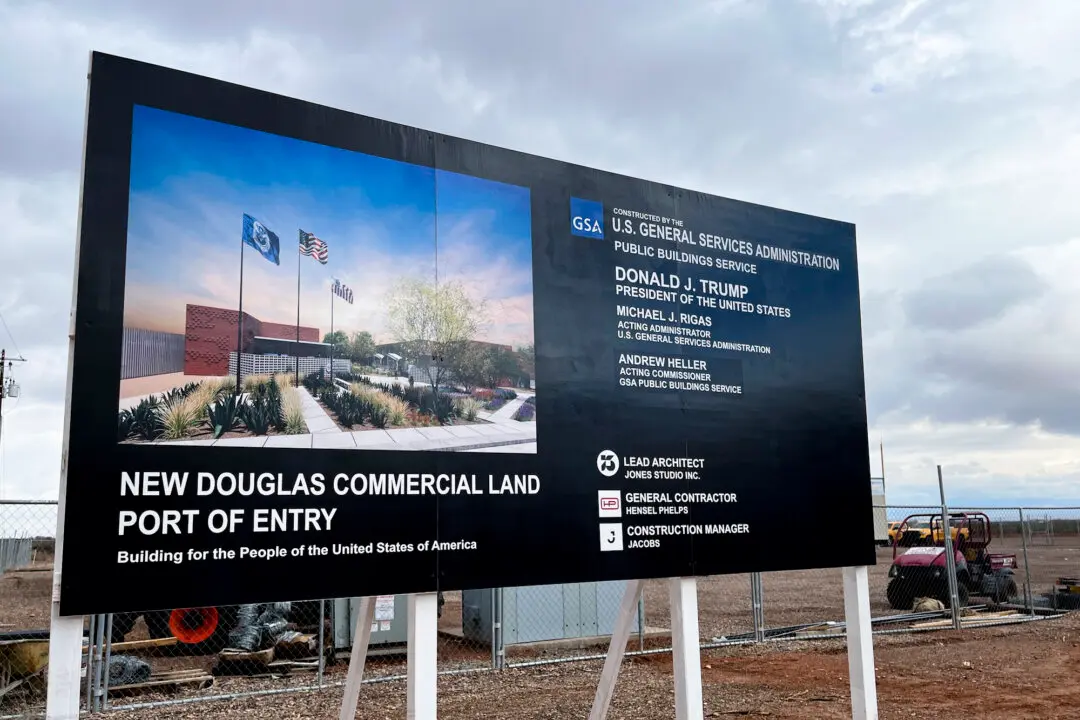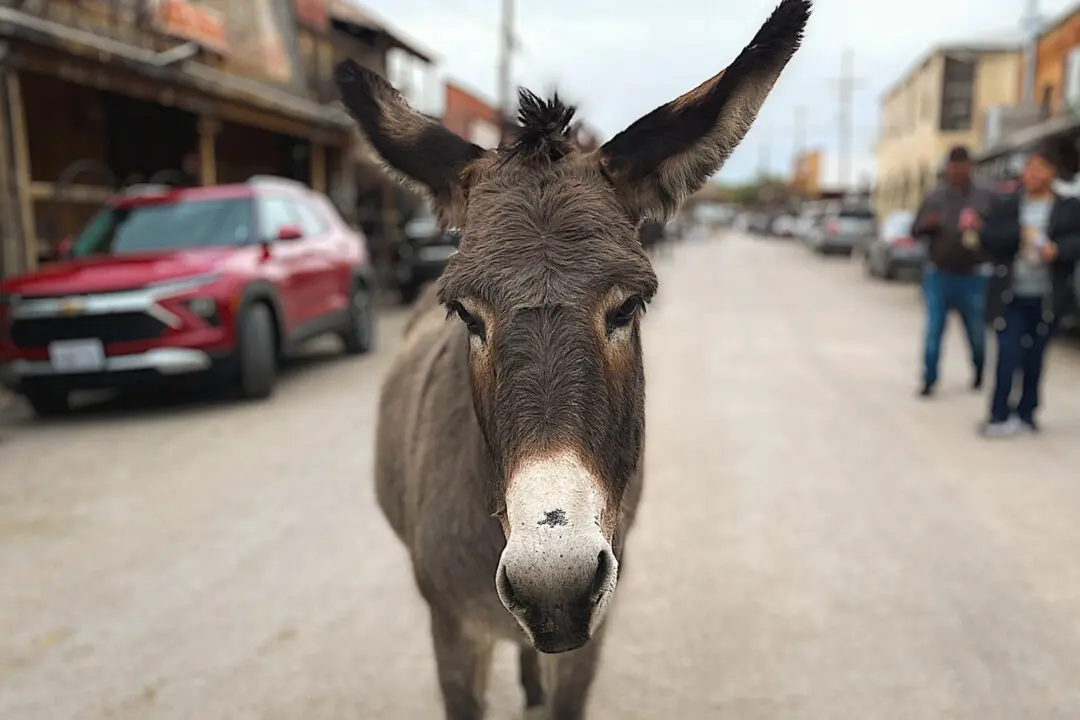The body of a WWII veteran used in a live pay-per-view autopsy in Portland, Oregon, has been shipped home to Baton Rouge, Louisiana.
David Saunders, who was 98 when he died of COVID-19 on Aug. 24, 2021, donated his body to science—only to have it dissected in front of a live audience in a ballroom at the Marriott Hotel, reportedly without his family’s knowledge or consent.





